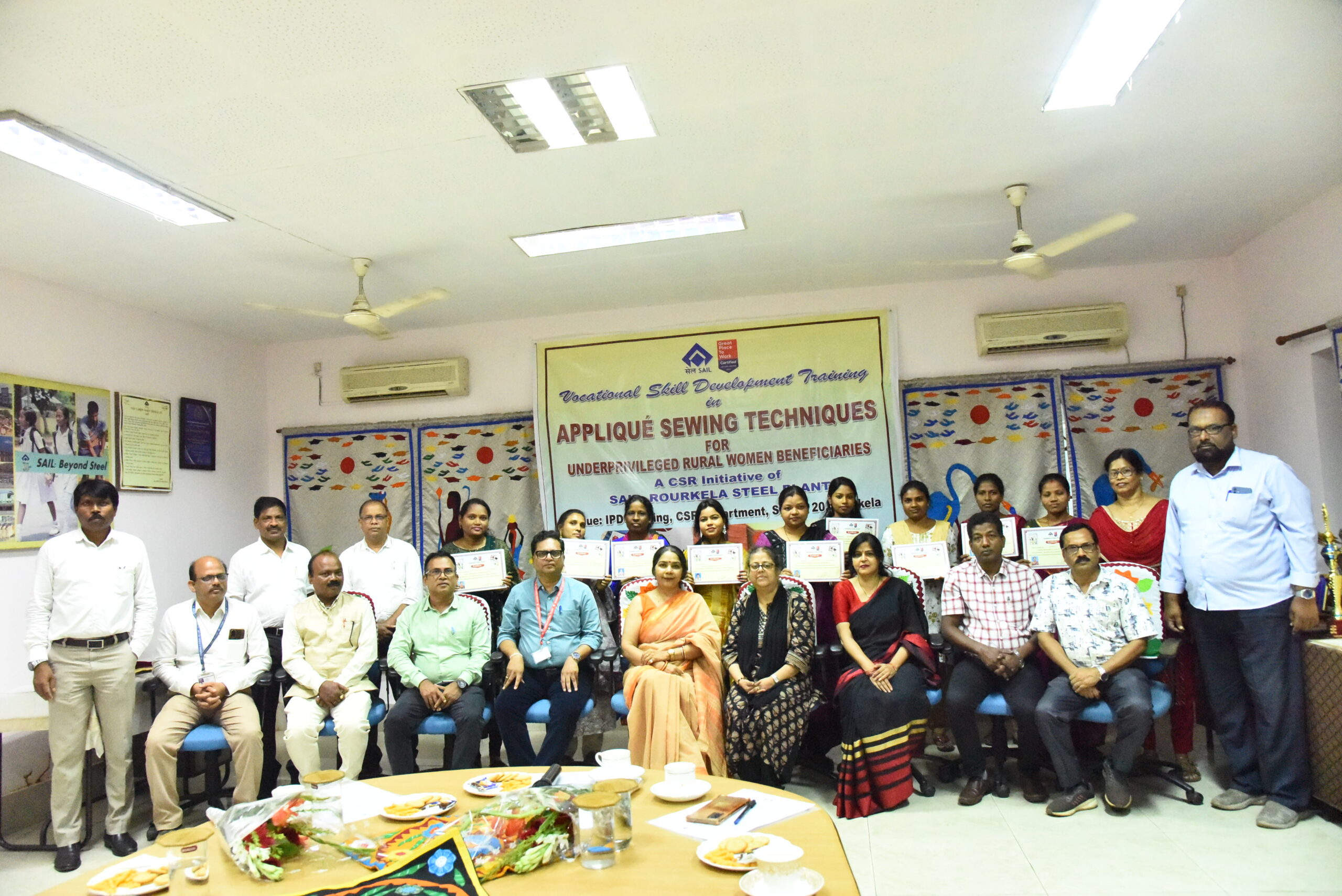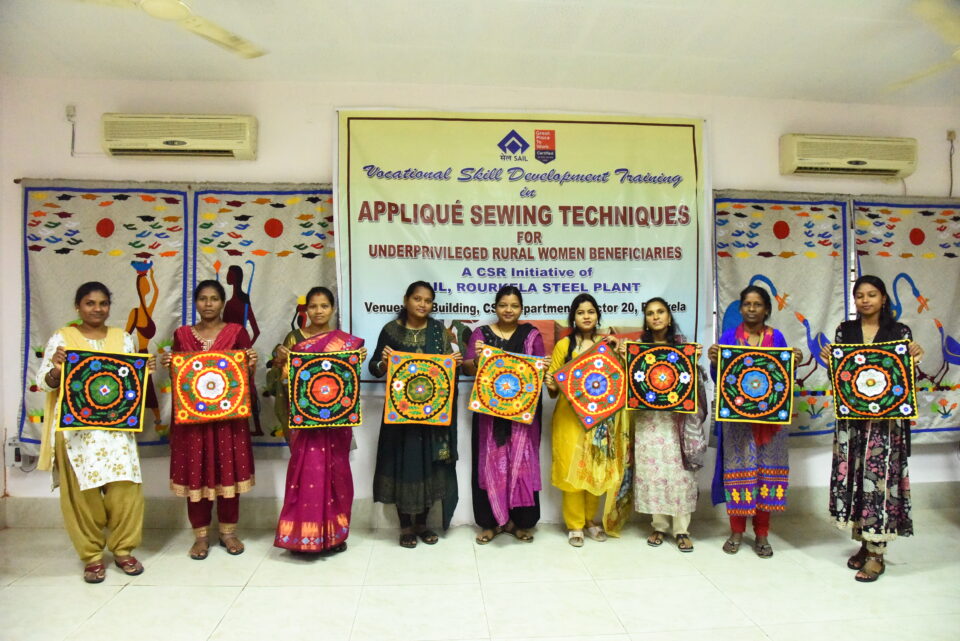Ten underprivileged women from Jhirpani Resettlement Colony, Purnaani, Baniguni peripheral villages and nearby industrial slums successfully completed the 60-day training on Appliqué Work organized by the CSR Department of SAIL, Rourkela Steel Plant (RSP) at the Institute for Peripheral Development. The unique CSR initiative aims to empower the underprivileged peripheral women through livelihood training and up skilling.
Mrs. Namrata Verma, President, Deepika Mahila Sanghati was the Chief Guest of the valedictory function held on 14th July, 2025. Mr. T G Kanekar, CGM (TS&CSR) was the Guest of the Honour. The dignitaries handed over the Certificate of completion to all the trainees. Ms. Munmun Mittra, GM In-Charge (CSR), Mr. Bivabasu Mallik, GM (CSR), Mr. T B Toppo, AGM (CSR), Mrs. Sarika Kumar, Secretary (DMS) and other Officials of RSP and concerned agencies.

Speaking on the occasion Mrs. Verma appreciated the CSR endeavours taken towards economic empowerment of the women of peripheral villages. She urged all to make the best use of the skills gained to create sustainable livelihood opportunities for themselves.
Mr. T G Kanekar spoke about the wide scope and potential of this unique CSR initiative and highlighted how skill development programs like Appliqué Work training can open up new avenues for sustainable income generation and promote economic independence among women from peripheral communities.
The women beneficiaries also shared their experience on the occasion.
Ms. Munmun Mittra welcomed the gathering while Mr. T B Toppo proposed a formal vote of thanks. Mr. B Ekka, Section Officer, CSR coordinated the programme.
It is noteworthy that the training conducted by award-winning master trainer Mr. Krushna Chandra Mohanty and assisted by Ms. Shraddhanjali Mohanty, focused on many more than sewing techniques. It was a holistic curriculum covering everything from basic hand stitching and design tracing to traditional and contemporary appliqué methods, fabric coordination, patch work, embroidery and product creation. The women learnt to craft items like handkerchiefs, cushion covers, bedspreads, wall hangings, saree borders, and trendy tote bags.
The programme designed with a total project cost of Rs 2,04,500/- trains participants in quality control, costing, branding, and market linkage. By nurturing entrepreneurial skills, the initiative prepares these women not only to earn a supplementary income but also to potentially become independent business owners or even future trainers, creating a ripple effect of empowerment across their communities. Moreover, the programme guides them to access government schemes for loans, subsidies, and insurance, and equips them to receive artisan certification, thereby enhancing their long-term income opportunities and social standing.

